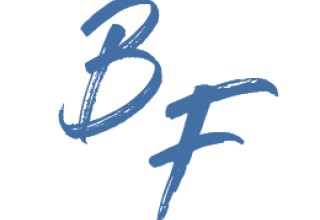The Keys to Improving Teamwork Are Vulnerability, Honesty, Openness, Being Present and Being Aware, Says Brandon Frere

PETALUMA, Calif., November 7, 2018 (Newswire.com) - Every team could perform better with stronger teamwork. Unfortunately, many teams don’t understand how to develop their teamwork. Brandon Frere, founder of Frere Enterprises and other ventures, may be able to share a few principles that can improve the way a team performs.
“The way that teams act influences the company on every level,” said Frere. “By looking at teamwork through the lens of a few principles, individuals may be able to improve their ability to perform as a team.”
Improving teamwork comes down to practicing a few core principles consistently over a long period of time, the same as any skill.
Brandon Frere, CEO of Frere Enterprises
Vulnerability is the first principle of team building. A team that can be vulnerable with one another can trust one another. If a team is willing to share personal, vulnerable history, it may be able to build trust around that history. Teams that are encouraged to share histories that are important to them and remain vulnerable may be able to share why they think the way they do as well as their method of problem-solving. With this trust, teams may be able to offer help and accept it or receive feedback and actually believe it.
Honesty is the second principle of team building. An honest team should be able to debate with one another over issues and resolve those issues before the problem boils. Teams may develop the ability to be honest with one another if a leader mediates some smaller debates and shows that it is okay to disagree. By encouraging frequent discussions and how the team argues, teams may get better at estimating when an issue needs to be solved, as well as the methods to effectively solve it.
Openness is the third principle of team building. An open team communicates their various perspectives in order to obtain consensus. Problems in openness often occur when everyone thinks they understand what's going on, but they don’t check to make sure everyone agrees with what’s going on. Having routine discussions about key decisions can make sure teams agree on the why, how and what that comes from each decision. Exercises in which the team must solve a problem by discussing the problem with little research may help teams build openness.
Being present is the fourth principle of team building. A team that is present knows what is expected of them and can easily reference that information. Having the metrics and reasoning for success clearly written down means the team has a greater chance of succeeding. If a teammate understands every metric that they’ll be judged on then they have a higher chance of rising to meet that expectation.
Awareness is the final principle of team building. Teams that are aware see how their actions affect everything else. Unaware teams are ego-driven and focused on doing things that are challenging, but ultimately inefficient for the team. Aware teams that share group results and are willing to commit to those results will often perform better than those that don’t. A team that knows their purpose can feel a sense of unity and purpose. By judging the team as a unit and showing the team how they are performing as a unit, the team may start to feel that sense of unity and purpose.
“Improving teamwork comes down to practicing a few core principles consistently over a long period of time, the same as any skill,” said Frere. “A team that consistently works together and executes their objectives may be the most important factor in the success of an organization. By remaining vulnerable, honest, open, present and aware, many businesses may be able to find the teamwork that remains an elusive way to build a better company.”
About Brandon Frere
Brandon Frere is an entrepreneur and businessman who lives in Sonoma County, California. He has designed and created multiple companies to meet the ever-demanding needs of businesses and consumers alike. His website, www.BrandonFrere.com, is used as a means of communicating many of the lessons, fundamentals and information that he has learned throughout his extensive business and personal endeavors, most recently in advocating on behalf of student loan borrowers nationwide.
As experienced during his own student loan repayment, Mr. Frere found out how difficult it can be to work with federally contracted student loan servicers and the repayment programs designed to help borrowers. Through those efforts, he gained an insider’s look into the repayment process and the motivations behind the inflating student loan debt bubble. His knowledge of the often confusing landscape of student loan repayment became a vital theme in his future endeavors, and he now uses those experiences to help guide others through the daunting process of applying for available federal repayment and loan forgiveness programs.
BrandonFrere.com
Source: Brandon Frere


